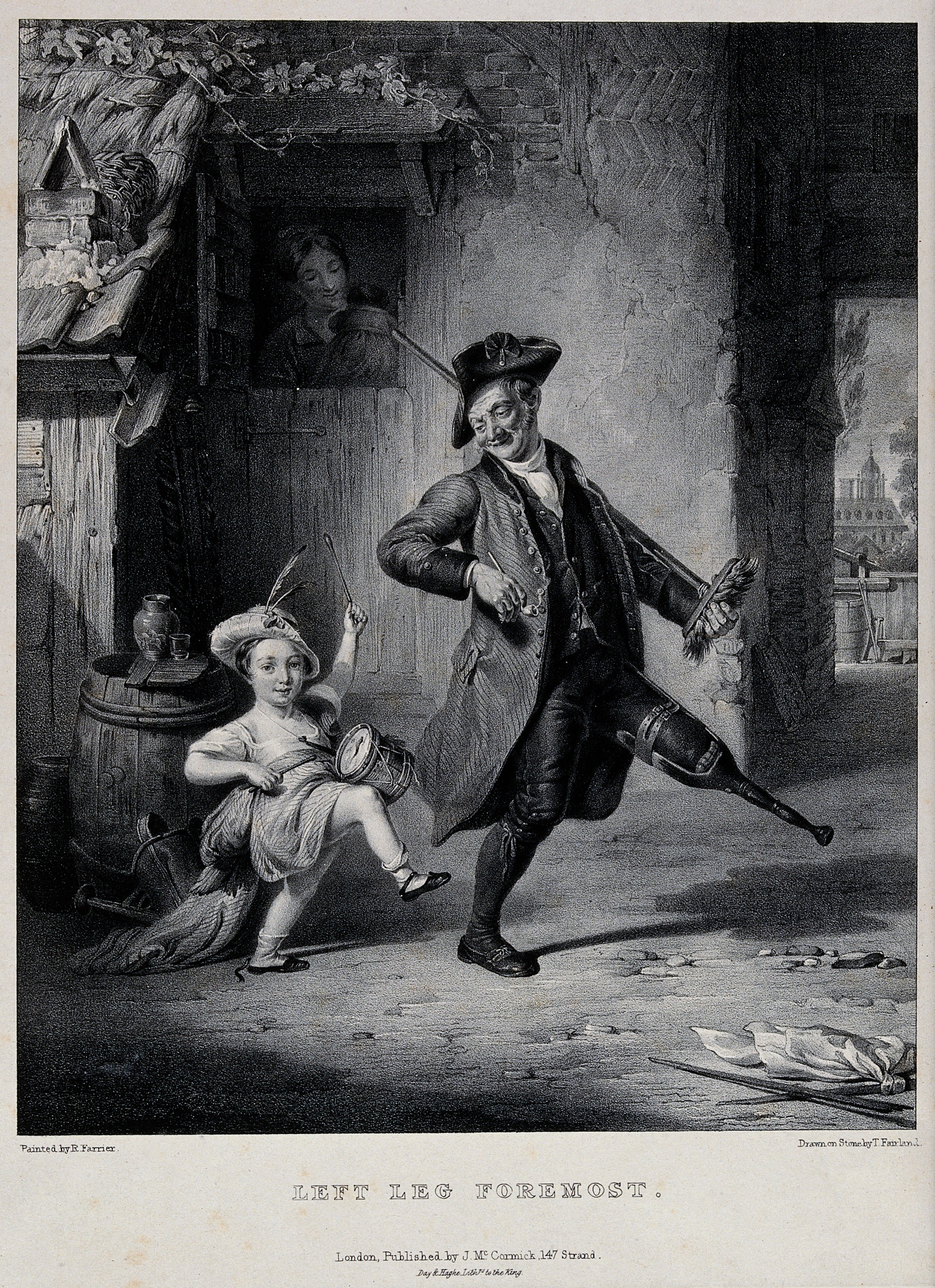3.2.2
Jonathan Small
Jonathan Small
Jonathan Small
Although we do not meet Jonathan Small until Chapter 10, we learn a great deal about him from the reactions and descriptions of other characters.


Dangerous after his arrest
Dangerous after his arrest
- When he is finally arrested, Jonathan Small continues to appear dangerous and slightly deranged – Watson notes with disgust that Small even seems to smile after he has been arrested: ‘he looked up at me with a gleam of something like humor in his eyes’.


Terrifies other characters
Terrifies other characters
- Watson notes that he is not surprised that Major Sholto had been terrified when he had learnt that Jonathan Small was out of prison: ‘it was no groundless or unnatural terror which had possessed Major Sholto when he first learned that the injured convict was upon his track’.


Remorseless
Remorseless
- When he is confronted about the case, Small appears remorseless: Watson is disgusted by ‘the somewhat flippant and careless way in which he narrated it’.


Feels entitled
Feels entitled
- Small seems to feel that he has worked hard and deserves the treasure – he has committed one murder, stolen the treasure, committed another murder and then been involved in another one, and has spent years searching for the treasure, before he finally stole it again from someone else.
- When Small reveals that he deliberately threw the treasure overboard into the Thames, he feels justified: ‘It is my treasure; and if I can't have the loot I'll take darned good care that no one else does’.


Dangerous
Dangerous
- Small is a dangerous character because he does not see what was wrong with his actions and, indeed, seems to think that he deserves to live happily with the treasure now: ‘Where is the justice that I should give it up to those who have never earned it? Look how I have earned it!’
Jonathan Small's Wooden Leg
Jonathan Small's Wooden Leg
Although we do not meet Jonathan Small until Chapter 10, we learn a great deal about him from the reactions and descriptions of other characters.


Wooden-legged man
Wooden-legged man
- The first time he is described, he is called ‘the wooden-legged man’.
- This creates a sense of intrigue and mystery, as he seems to have a horrible reputation – he presents such a nasty image to people that they remember him. The fact that he has one leg also creates a lot of questions, as readers wonder what has happened to him – it seems very sinister.
- He is presented as a dangerous, evil character: ‘wooden-legged man, wi' his ugly face and outlandish talk’.


Menacing motif
Menacing motif
- Structurally, the idea of the wooden-legged man recurs throughout the novel, from Chapter 4 to the end.
- Each time he is mentioned, is it because of something menacing he has done.
- E.g. in Chapter 4 we are told that he appeared at the window (staring nastily into the room) just as Major Sholto died.
- Without ever meeting Jonathan Small, we are shown that he must be a terrifying man – Sholto is horrified at the idea that Small might be nearby and is petrified that he could get into the house.
Key Quotations about Jonathan Small
Key Quotations about Jonathan Small
Here are five key quotations about Jonathan Small:


Wooden-legged man
Wooden-legged man
- ‘The wooden-legged man’ (Chapter 5).
- The noun phrase, ‘wooden-legged man’ adds mystery to Small’s character.
- He seems somewhat anonymised, as he is identified only by his leg – he is an unknown villain, which adds intrigue and causes fear around his character.
- Throughout the novella, the wooden-legged man is mentioned repeatedly – each time, this is around the time when something bad happens.


Mysterious and terrifying
Mysterious and terrifying
- 'Keep him out! For Christ's sake keep him out!' (Major Sholto).
- The pronoun ‘him’ is used here twice to add to the anonymity of the mysterious villain. We do not know his name, but the reader knows that this man must be terrifying because of Sholto’s reaction.
- Major Sholto’s repeated use of the imperative ‘keep’ and the exclamation mark suggest that he is utterly terrified about Jonathan Small being nearby, which adds danger to his character.


Remorseless
Remorseless
- ‘He looked up at me with a gleam of something like humor in his eyes’ (Chapter 11).
- Jonathan Small is shown to be a terrifying character and a horrible criminal as, just after he has been arrested (and Tonga has been killed), he seems to find the situation funny, which causes readers to fear him even more – he seems completely remorseless, which makes him incredibly dangerous.


Inhuman
Inhuman
- ‘The somewhat flippant and careless way in which he narrated it’ (Chapter 12).
- From Watson’s viewpoint, we are told that Jonathan Small speaks in a ‘flippant and careless way’ about his involvement in the case.
- Watson finds this horrifying because Small murdered a man, stole his treasure, and then almost stalked Sholto until he died, before being involved in another murder. However, he does not seem to feel any remorse about his actions – this makes him seem almost inhuman.


Alienates from audience
Alienates from audience
- ‘Where is the justice that I should give it up to those who have never earned it? Look how I have earned it!’ (Chapter 12).
- Small alienates himself from the audience and removes any possible empathy from the reader – in his eyes, true justice would mean that he should be allowed to live happily with the treasure now because he has worked so hard to obtain it.
- He does not seem to realise that his actions were wrong in the first place – he murdered a man to steal his treasure.
1Context
2Plot Summary
2.1Chapter Summaries
3Characters
3.1Key Characters
3.2Other Characters
3.3Grade 9 - Key Characters
4Key Themes
5Writing Techniques
6Recap: Main Quotes
6.1Characters Quotes
6.2Text Structure - Quotes
6.2.1Chapter 1 - Quotations
6.2.2Chapter 2 - Quotations
6.2.3Chapter 3 - Quotations
6.2.4Chapter 4 - Quotations
6.2.5Chapter 5 - Quotations
6.2.6Chapter 6 - Quotations
6.2.7Chapter 7 - Quotations
6.2.8Chapter 8 - Quotations
6.2.9Chapter 9 - Quotations
6.2.10Chapter 10 - Quotations
6.2.11Chapter 11 - Quotations
6.2.12Chapter 12 - Quotations
Jump to other topics
1Context
2Plot Summary
2.1Chapter Summaries
3Characters
3.1Key Characters
3.2Other Characters
3.3Grade 9 - Key Characters
4Key Themes
5Writing Techniques
6Recap: Main Quotes
6.1Characters Quotes
6.2Text Structure - Quotes
6.2.1Chapter 1 - Quotations
6.2.2Chapter 2 - Quotations
6.2.3Chapter 3 - Quotations
6.2.4Chapter 4 - Quotations
6.2.5Chapter 5 - Quotations
6.2.6Chapter 6 - Quotations
6.2.7Chapter 7 - Quotations
6.2.8Chapter 8 - Quotations
6.2.9Chapter 9 - Quotations
6.2.10Chapter 10 - Quotations
6.2.11Chapter 11 - Quotations
6.2.12Chapter 12 - Quotations
Unlock your full potential with Seneca Premium
Unlimited access to 10,000+ open-ended exam questions
Mini-mock exams based on your study history
Unlock 800+ premium courses & e-books